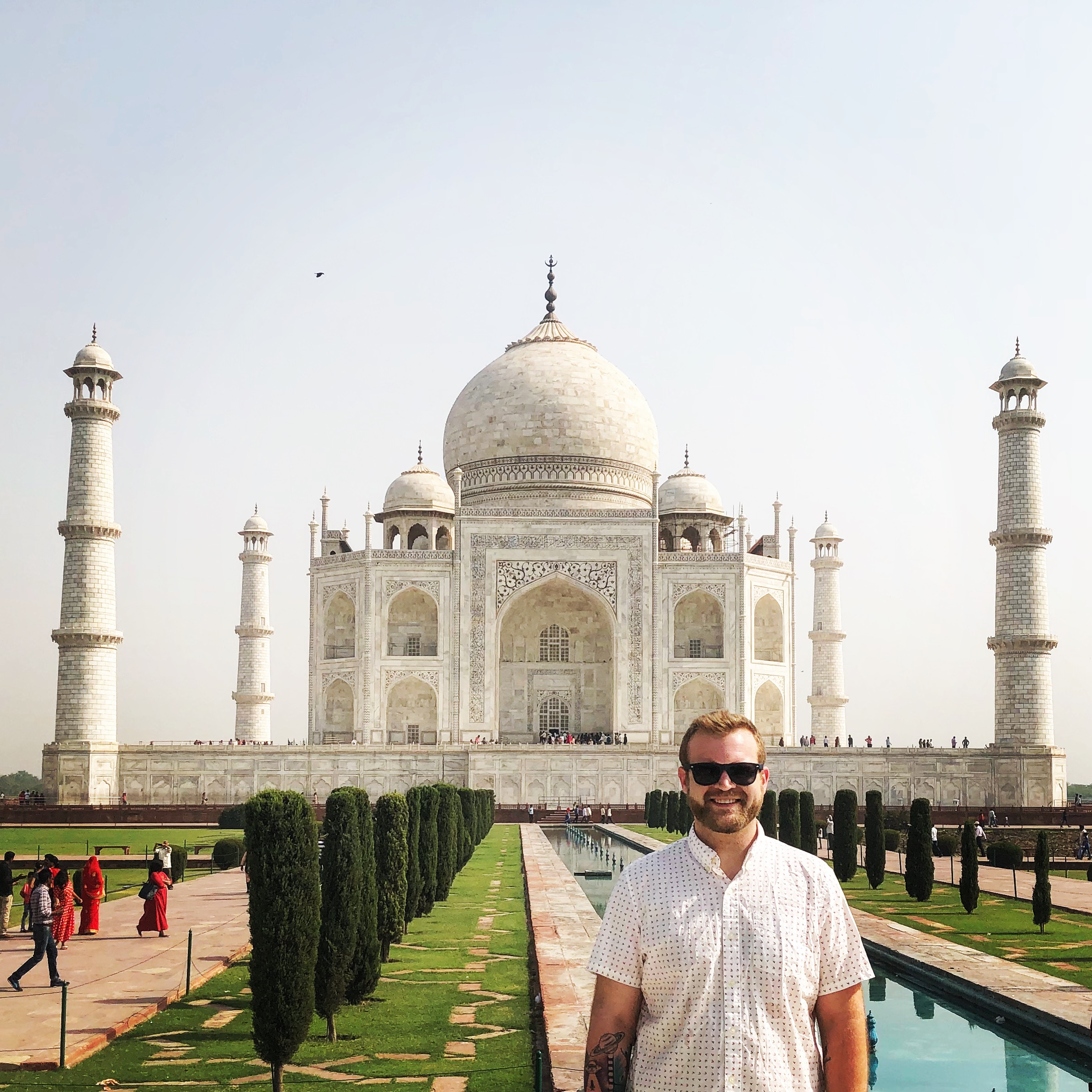 Thanks to the generous award from the Brasenose College Annual Fund, I was able to take a long sought-after trip to India this May. I have been doing a large piece of writing about my own religious experience, and I have always been fascinated by religion in India. I set out to see firsthand the experiences of those living in India, and I spent 10 days traveling the northern part of the country in search of conversations about religious life.
Thanks to the generous award from the Brasenose College Annual Fund, I was able to take a long sought-after trip to India this May. I have been doing a large piece of writing about my own religious experience, and I have always been fascinated by religion in India. I set out to see firsthand the experiences of those living in India, and I spent 10 days traveling the northern part of the country in search of conversations about religious life.
I encountered people of varying type and depth of religion. I encountered countless devout Hindus in Varanasi who came to burn their loved ones who had passed away in the presence of the god Shiva. I encountered people who helped in the running of temples in hopes of good karma for the next life. I spoke with other travelers who were Christians, atheists, Muslims, and Jews, all coming to see what India had to offer. In many ways, religion is woven into the fabric of everyday Indian life. When I thought about India, I thought about Hinduism more than anything, but I met Muslims fasting for Ramadan who were just as Indian as their Hindi or Sikh brothers and sisters. Where I had imagined a very homogenous religious experience, I found diversity and vibrant weaving of different lifestyles and cultures. Despite any tensions going on within India amongst its religious populations that you hear about in the news, that was not my experience. I felt warmth and kindness from Indians devout in their own faiths and coexisting and thriving with their neighbors. I left India with a fresh reminder of the beauty of all of our differences and how we must overcome them as we share our increasingly interconnected and globally aware planet.
Several themes arose in my time in India. The most prominent was that one must be very flexible to enjoy India. It is pure chaos, and it is overwhelming to all of the senses. When you take a step back though, you see beauty and order in what is seemingly chaos. You realize that despite the fact that it looks like your tuk-tuk driver just cut off another driver, really, there is an unspoken understanding there that what has happened was not a transgression. The chaos is a way of life. It is a system that, when everyone buys in, works.
I think the world could take a few pointers from India. I am not saying we all need to strive for chaos, but I think if we all took a step back and realized that our society thrives because we all buy into an understanding with one another for peace and prosperity, the world would be a better place. No system is perfect, but we do need to work to understand one another, and a keen understanding of the world around them was what I found to be a constant amongst Indian people.
I will be grateful for the rest of my life for the opportunity that Brasenose has afforded me in this trip. Not only has it benefitted my writing, it benefitted me as a person, and that is a gift that is more than the money I was awarded. I hope to one day be able to contribute to Brasenose in a way that might express my gratitude for their support.
Ryan Bedell, MSc in Education (Higher Education), 2017-2018
The Brasenose Annual Fund, which helped Ryan cover the costs of his trip, exists to fund undergraduate and post-graduate student research, extracurricular activities, and educational and personal development.
